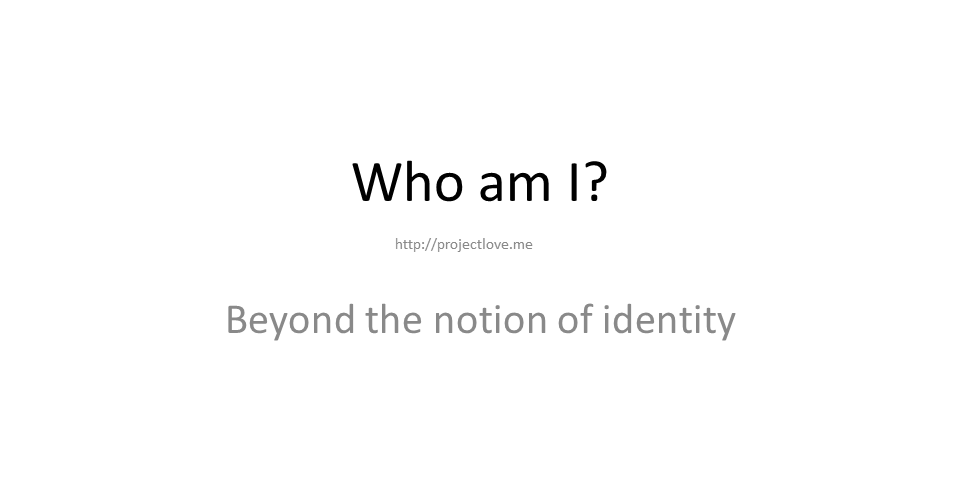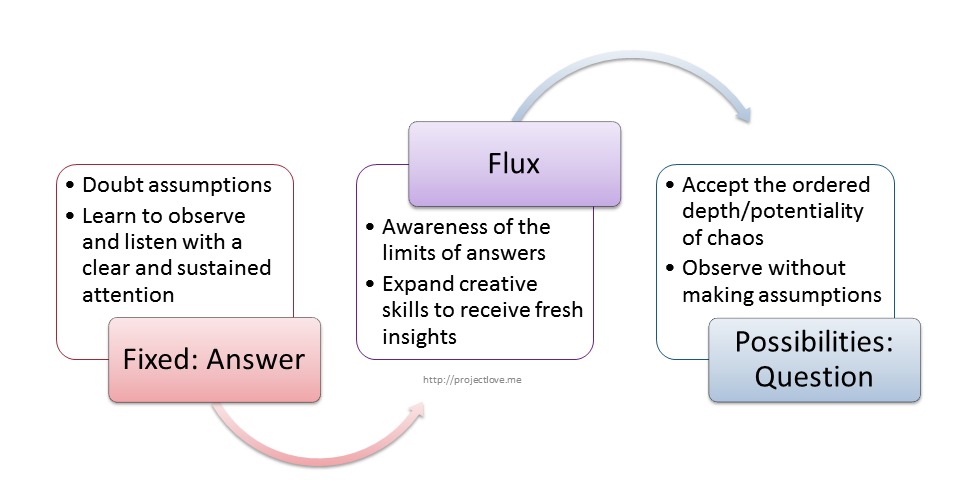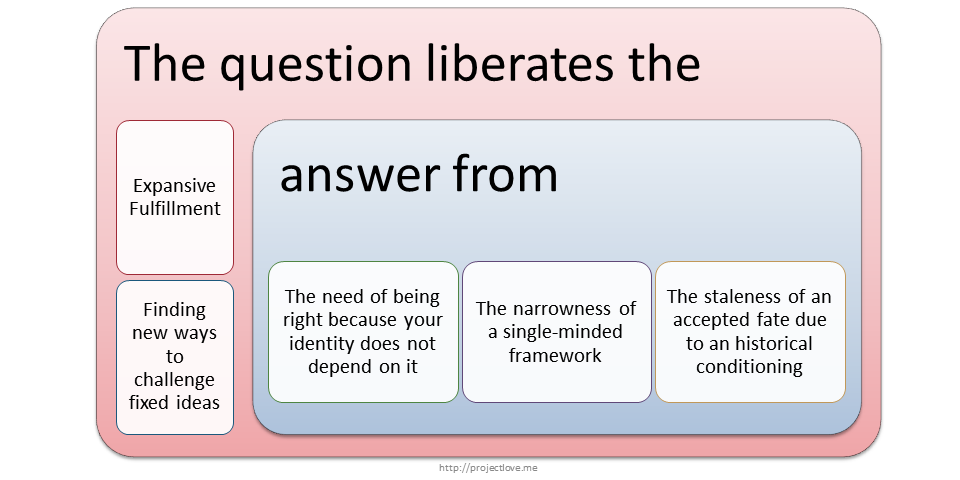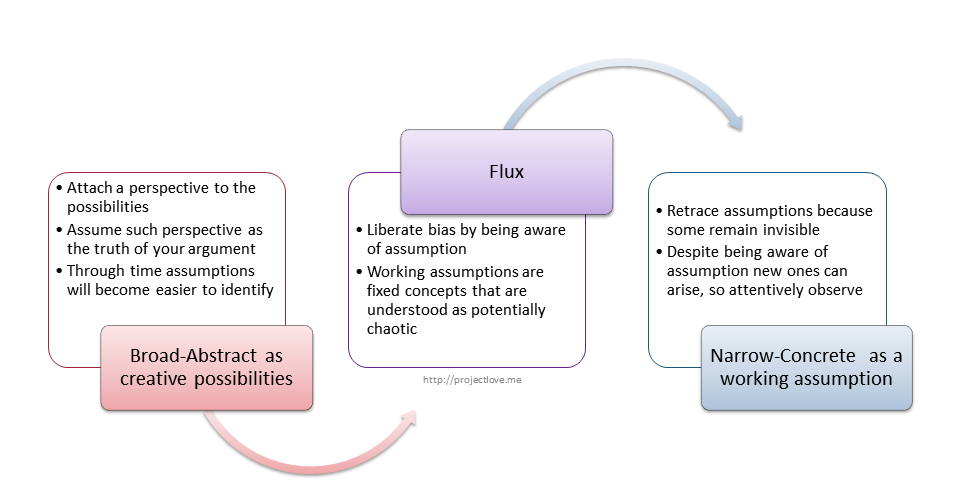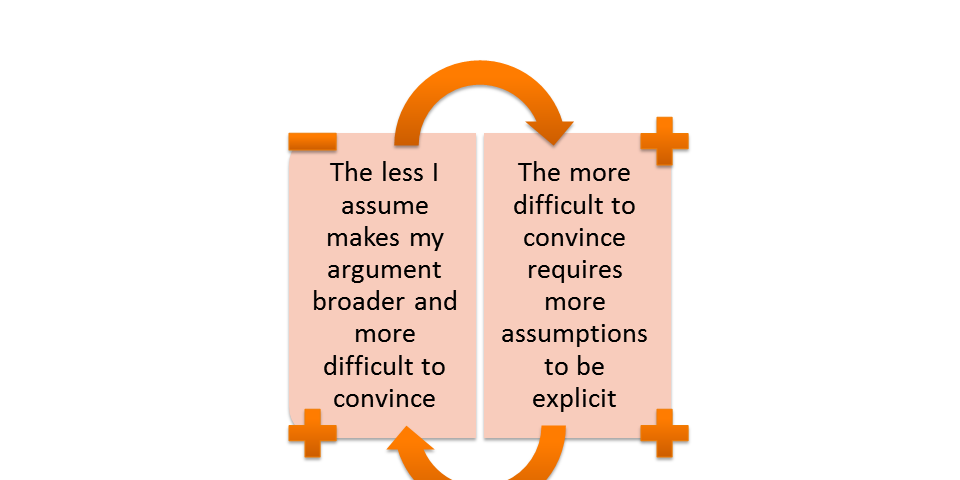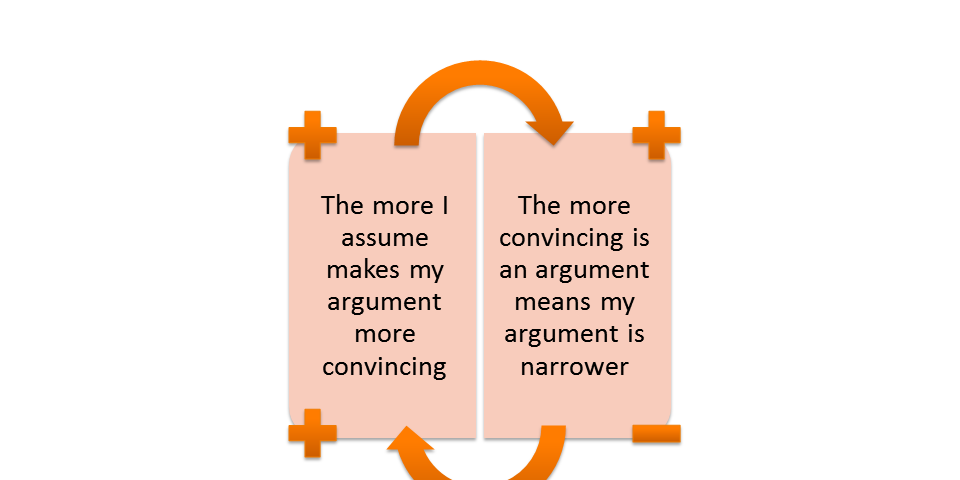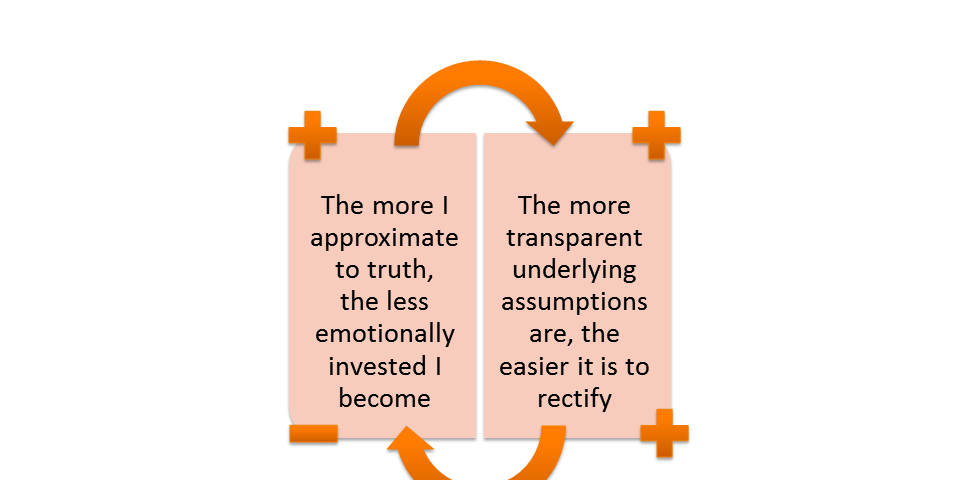The role of assumptions in our lives sometimes remains unchecked, but it is fundamental to analyze the profound impact these have on our daily lives. Our assumptions are behind most of our conflicts. For example if I assume the existence of a certain deity, then I might become intolerant toward others’ beliefs.
Our assumptions are similar to our beliefs, but assumptions are buried deeper. I might be aware of my belief, but not about the underlying assumption that sustains such belief.
However, assumptions are neither good nor bad. Assumptions shape our arguments, but how do assumptions limit our understanding of truth? Through perspective! An assumption provides a perspective. If so, how does perspective relate to truth? The latter question is important because our identity, as an individual and even culture, is influenced by these assumptions.
Sometimes, an assumption that is not put into the test ends up being a source of violence between cultures. A power struggle occurs to determine who has the most “authority” to control others. How does this happen? Well, power structures create fear in order to make us submissive.
For that reason, our critical thinking is greatly needed. We need the ability to observe our assumptions. After observing, we must be willing to create new scenarios and thought experiments where these assumptions are challenged. Thus, it is up to us to uncover our assumptions and learn to live free from them through awareness.

